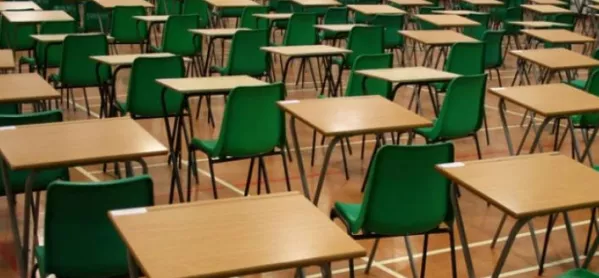Teacher assessments are as reliable as exams at predicting educational success - raising questions about the value of the testing culture, a new study suggests.
Researchers say their findings, published in the Journal of Child Psychology and Psychiatry, question whether the benefits of standardised exams outweigh the costs.
The research comes ahead of hundreds of thousands of Year 6 children starting their Sats today.
It found teacher assessments correlated strongly with test results across English, maths and science from age seven to 14, with both measures equally effective at predicting later exam success.
Stress: Thousands calling childline over exams
Sats: The toll it takes on teachers and pupils
Ofsted: Teaching to the test set to be penalised
According to the study, teacher assessments predicted around 90 per cent of the differences between pupils in exam performance at GCSE and A level.
Co-lead researcher Dr Kaili Rimfeld, from the Institute of Psychiatry, Psychology & Neuroscience (IoPPN) at King’s College London, said: “We have shown for the first time that teacher assessments predict GCSE and A-level results just as well as earlier exam scores.
“The fact that exam scores correlate so highly with the teacher assessments raises questions about the value of the testing culture that characterises compulsory education in the UK.”
Previous research has looked at how either exam scores or teacher assessments predict educational success, but not compared the two.
The researchers made the comparison by linking data from more than 5,000 twin pairs in the Twins Early Development Study (TEDS) with teacher assessments and exam scores in the National Pupil Database.
Teachers are required to assess their pupils until age 14, and children sit standardised exams throughout school, including SATs at age seven and 11, GCSEs at age 16 and A-levels at age 18.
Co-lead researcher Dr Margherita Malanchini, from the IoPPN and the University of Texas at Austin added: “Our results should inform the debate about testing during both primary and secondary education.
“Trusting teachers to implement the curriculum and monitor progress
could benefit the well-being of pupils and teachers and help to bring joy back to the classroom.”
Mary Bousted, joint general secretary of the National Education Union, said: “These research findings could not be more timely.
“They show that teacher assessment is as reliable as exams to predict student achievement.
“Surely we must now question the amount of testing which we subject our children to at primary and secondary level.”
A Department for Education spokesperson said: “Exams are an essential part of ensuring that children and young people are taught the knowledge and skills they need in order to succeed in further study and in later life.
“Schools should encourage all pupils to work hard and achieve well, but this should not be at the expense of their wellbeing. They should provide appropriate support as part of their whole school approach to supporting the wellbeing and resilience of pupils.
“Assessments over the course of a child’s education help us to understand how well schools are supporting children.”





